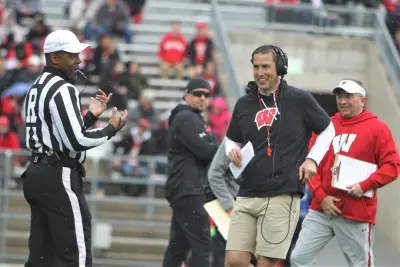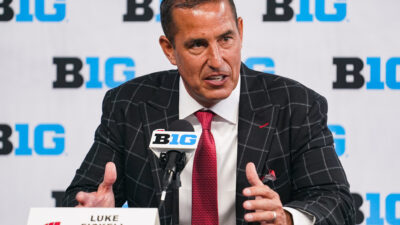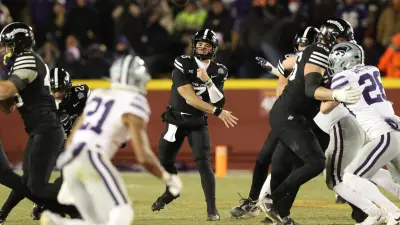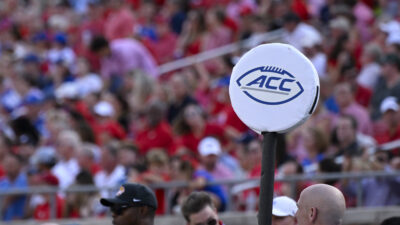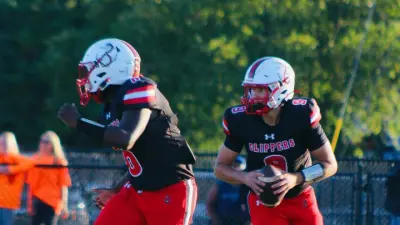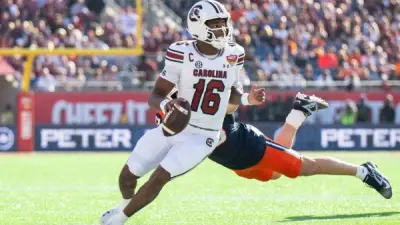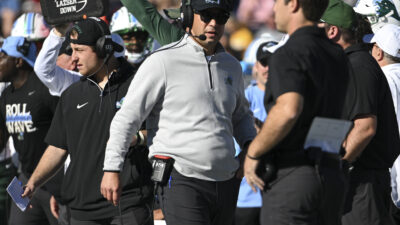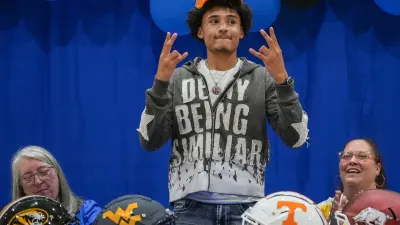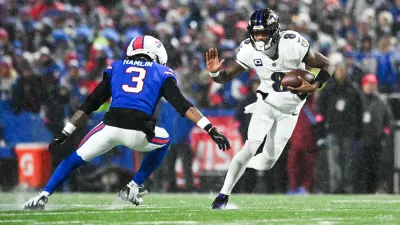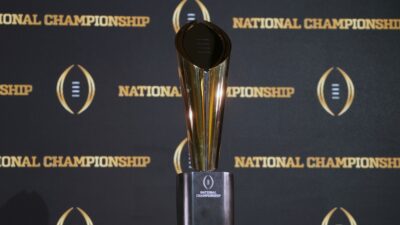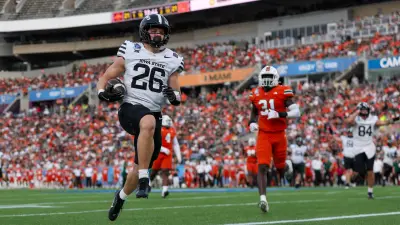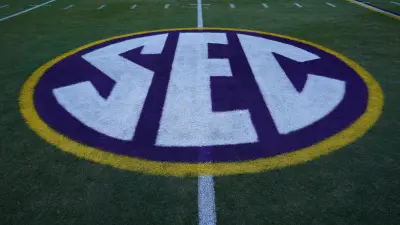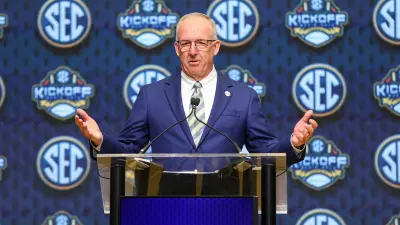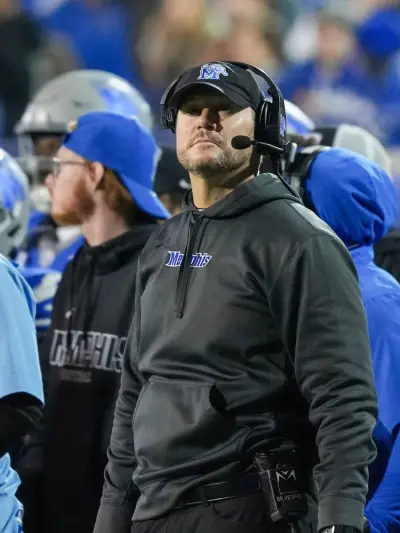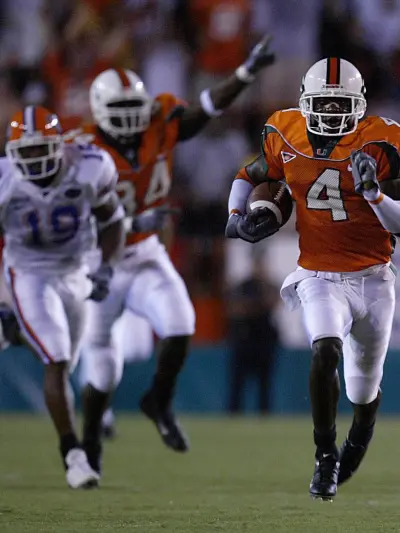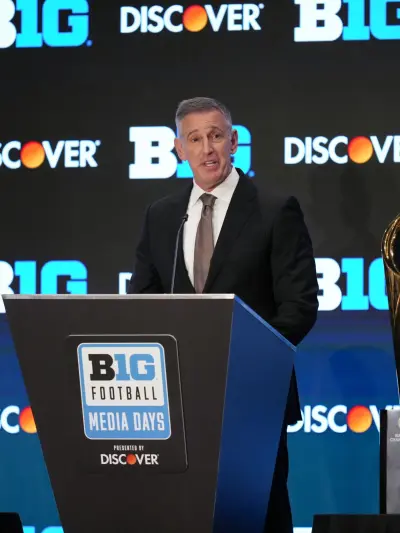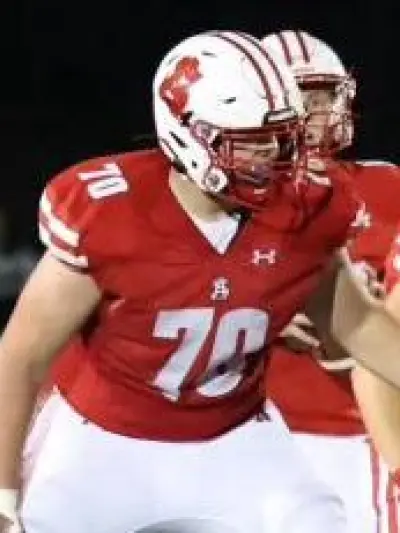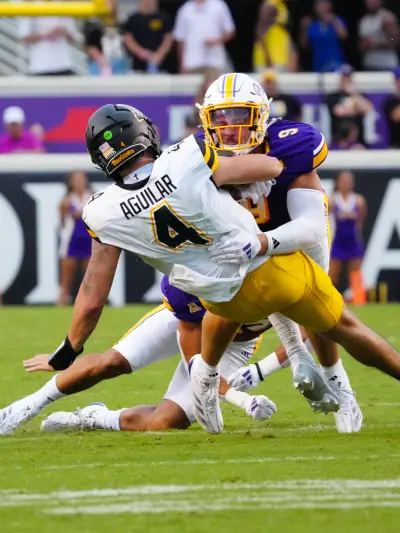For the first time since he was a member of the New Orleans Saints, Luke Fickell is part of a football team outside the state of Ohio.
Fickell began his career playing his high school football at St. Francis DeSales in Columbus, Ohio. His college choice Fickell didn’t venture too far from his high school stomping grounds when he chose Ohio State University, a place he would spend the next 22 of 24 years of his life as a player, graduate assistant, position coach, defensive coordinator, and head coach.
When Fickell felt it was time to become a head coach full-time, he ventured to Cincinnati for six seasons, winning 57 of 75 games, and guided Cincinnati as the first Group of 5 team to the College Football Playoff.
As he embarks on his first season at the helm of the Wisconsin Badgers, let’s take a look at how he got here and what the future holds.
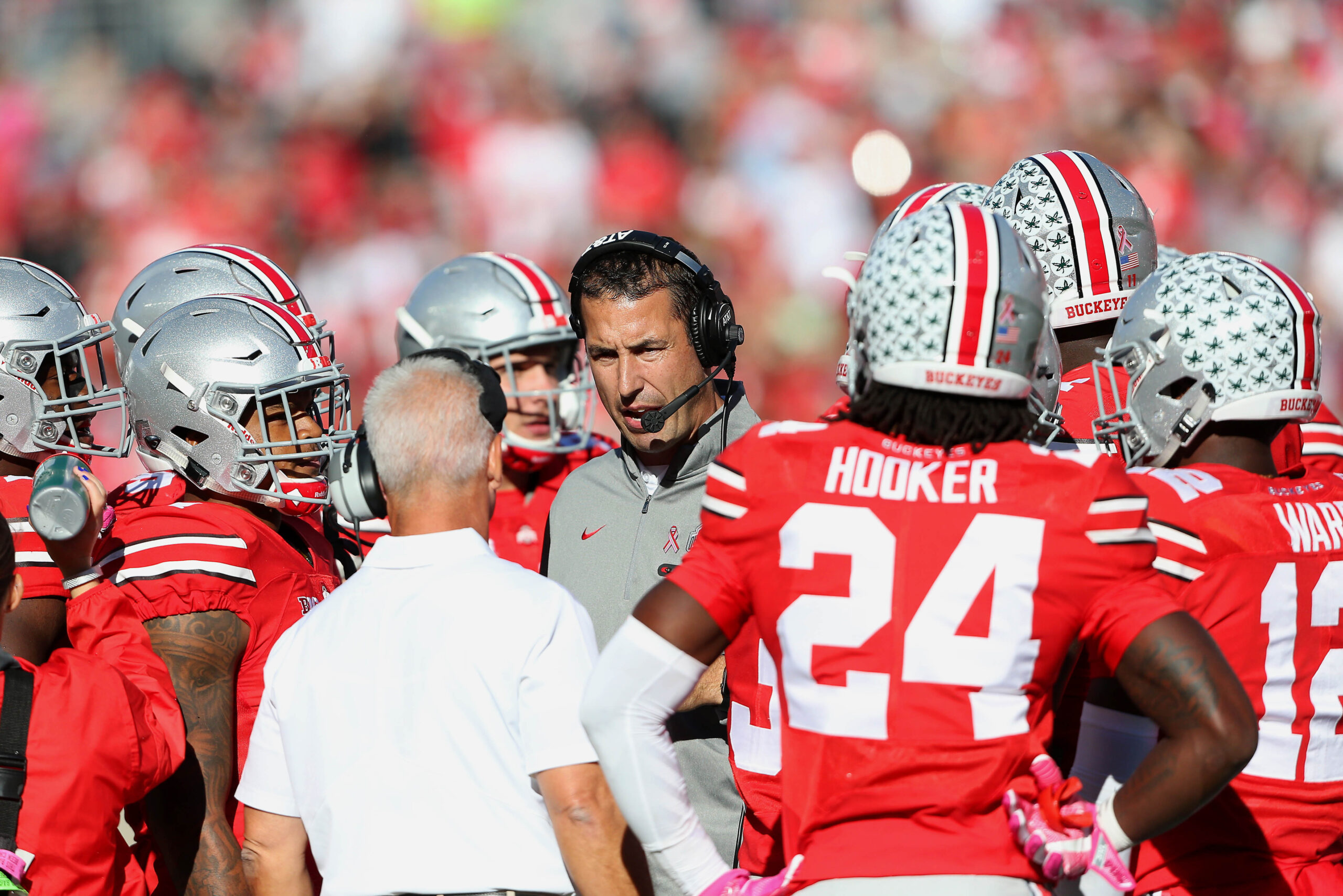
An Unexpected Promotion
On May 30, 2011, Ohio State head coach Jim Tressel tendered his resignation amid violations of improper benefits received by Ohio State players, notably quarterback Terrelle Pryor that included players receiving discounted tattoos or cash.
Fickell had to learn from failure during his stint, something he acknowledged at Big Ten Media Days, “The eight or nine months where I had an opportunity to kind of do things on my own really kind of showed me how important the true leadership behind all that we do is,” Fickell said. “The failures I had, especially in those eight or nine months, probably as much as those other times with those guys, have really helped me be who I am.”
More Sports News
During Fickell’s first season as a head coach, Ohio State was beleaguered by many deficiencies across the board.
It did not help Fickell that he did not have the services of All-Big Ten quarterback Terrelle Pryor, who was starting to become a serious Heisman candidate following a season where he completed nearly two-thirds of his passes, over 3,500 yards of total offense and 31 total touchdowns.
Fickell had to turn to Joe Bauserman early, and the results were horrendous. The poor efforts against Toledo and Miami hurt the Buckeyes’ chances. After the Miami outing, true freshman Braxton Miller got the nod and got the Buckeyes on a roll, but an untimely injury against Nebraska saw Bauserman return as the starter.
The rest would go down in infamy in Ohio State as one of the worst collapses in school history as Ohio State blew a 27-6 lead to lose to Nebraska 34-27.
Fickell, throughout the 2011 season, had to contend with inexperience as a head coach. There were multiple times during that campaign when a seasoned head coach would have called a certain play or had a particular strategy to close out a game. Fickell simply lacked that experience at that time, which cost him and the team.
His failure to hold down Purdue in overtime, the failed comeback against Penn State, and Fickell’s defense not being able to make the key stops against Michigan is what ultimately added to the litany of issues that plagued Ohio State that season.
From all facets, Fickell was inexperienced. He wasn’t able to make the right calls at the right times, the talent lost to NCAA violations crippled the team, and that resulted in a squad of inexperienced talent who weren’t disciplined or knew how to play in the biggest of moments.
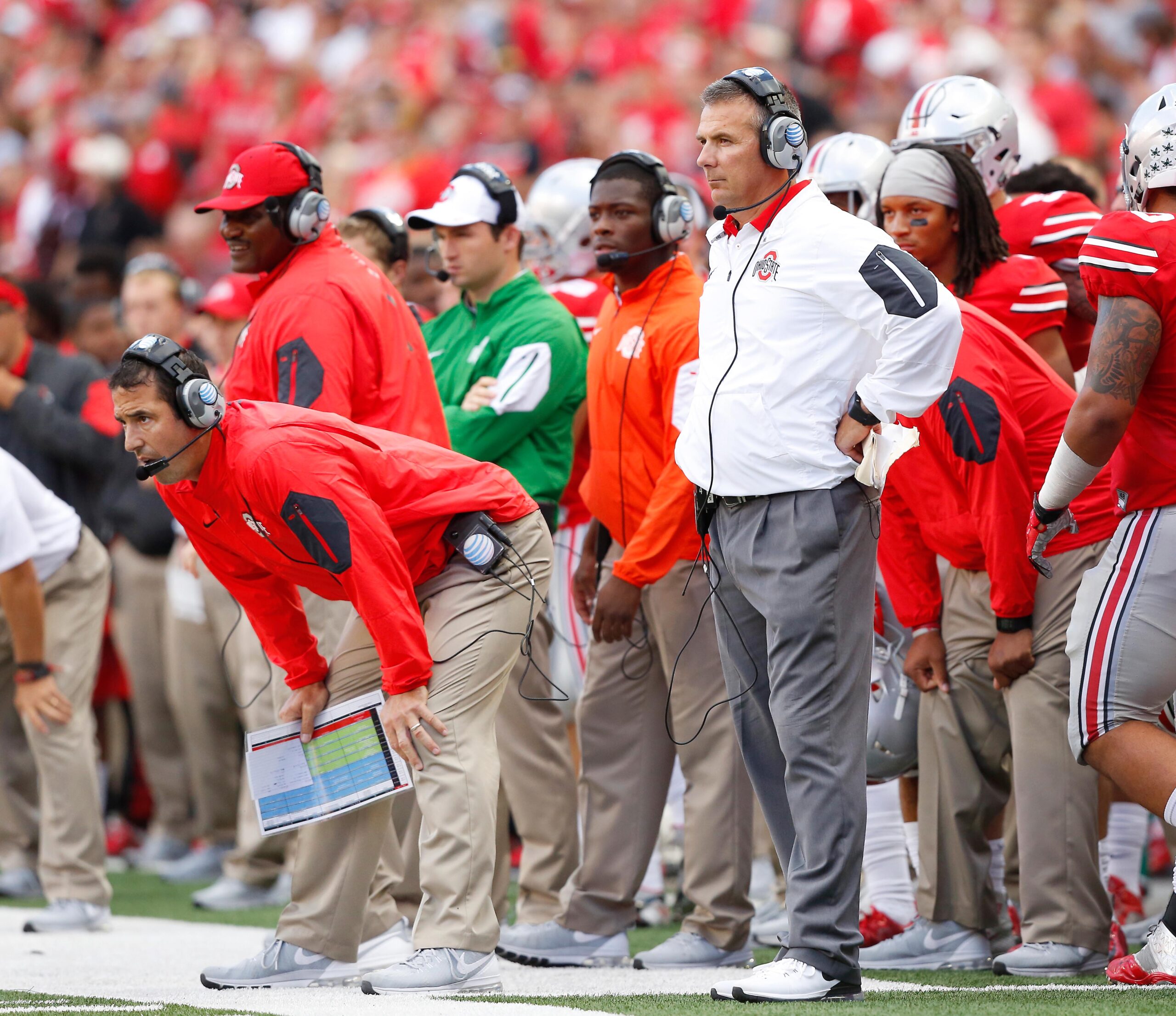
Learning from Urban Meyer
After Ohio State suffered its first losing season since 1988, the program knew Fickell wasn’t ready to handle the lofty expectations the program desired and was able to lure in Urban Meyer to take over.
To his credit, Meyer recognized Fickell was an asset. After being put into a difficult situation, he managed to get Ohio State bowl eligible and got a lot of young talent needed experience to make the jump.
Fickell would be demoted from head coach to co-defensive coordinator and linebackers coach under Urban Meyer.
Over the next five seasons, Fickell absorbed all the traits he learned from Meyer and helped produce one of the most dominant runs in Ohio State history.
Between 2012 and 2016, Ohio State went 61-6, including 39-2 in Big Ten conference play, went undefeated in 2012, and won the inaugural College Football Playoff.
His defensive coaching opus at Ohio State was at the conclusion of the 2014 season. Ohio State was in the Big Ten Championship Game and down to their third quarterback. The Buckeyes had to contend with Melvin Gordon, who finished the season with over 2,500 rushing yards, averaging 7.5 yards per carry, and had 32 total touchdowns.
In that game, Ohio State limited Wisconsin to 258 total yards, and Gordon was not a factor averaging less than three yards per carry. The defense’s performance was a key contributor to Ohio State’s 59-0 rout of Wisconsin.
In the inaugural College Football Playoff, Fickell’s defense executed at an elite level during very key moments and situations. When the Sugar Bowl looked like it was going to be a slugfest, the Buckeye defense forced seven Alabama punts and three interceptions in the final 18 minutes of the game to seal the win.
In the College Football Playoff National Championship against Oregon, Ohio State turned the ball over four times, but Oregon was only able to muster only 10 points off those turnovers.
Fickell’s defenses were amongst the elite in the nation during his tenure under Meyer. They went from surrendering 22.3 points per game between 2012-2014 to just over 15 points per game in 2015 and 2016, finishing no lower than third in the country.
Ohio State had 17 defensive players drafted between the 2013-2017 NFL Draft, all of whom were tutored by Fickell.
Fickell reflected on his time at Ohio State at Big Ten Media Days, “Borrowed, stole, become a part of — they’re all those things. And I think those opportunities, those situations have all shaped me. I was very fortunate to be in one place for a very long time but really be with three Hall of Fame coaches. From Coach Coop, who I played for, to Coach Tressel to Coach Meyer, three hall-of-fame coaches that have done it in many different ways. And that’s probably the greatest thing that I learned, that there are many different ways to do this. There are many different ways to lead. There are many different ways to win and to grow a program. But it’s gotta be you.”
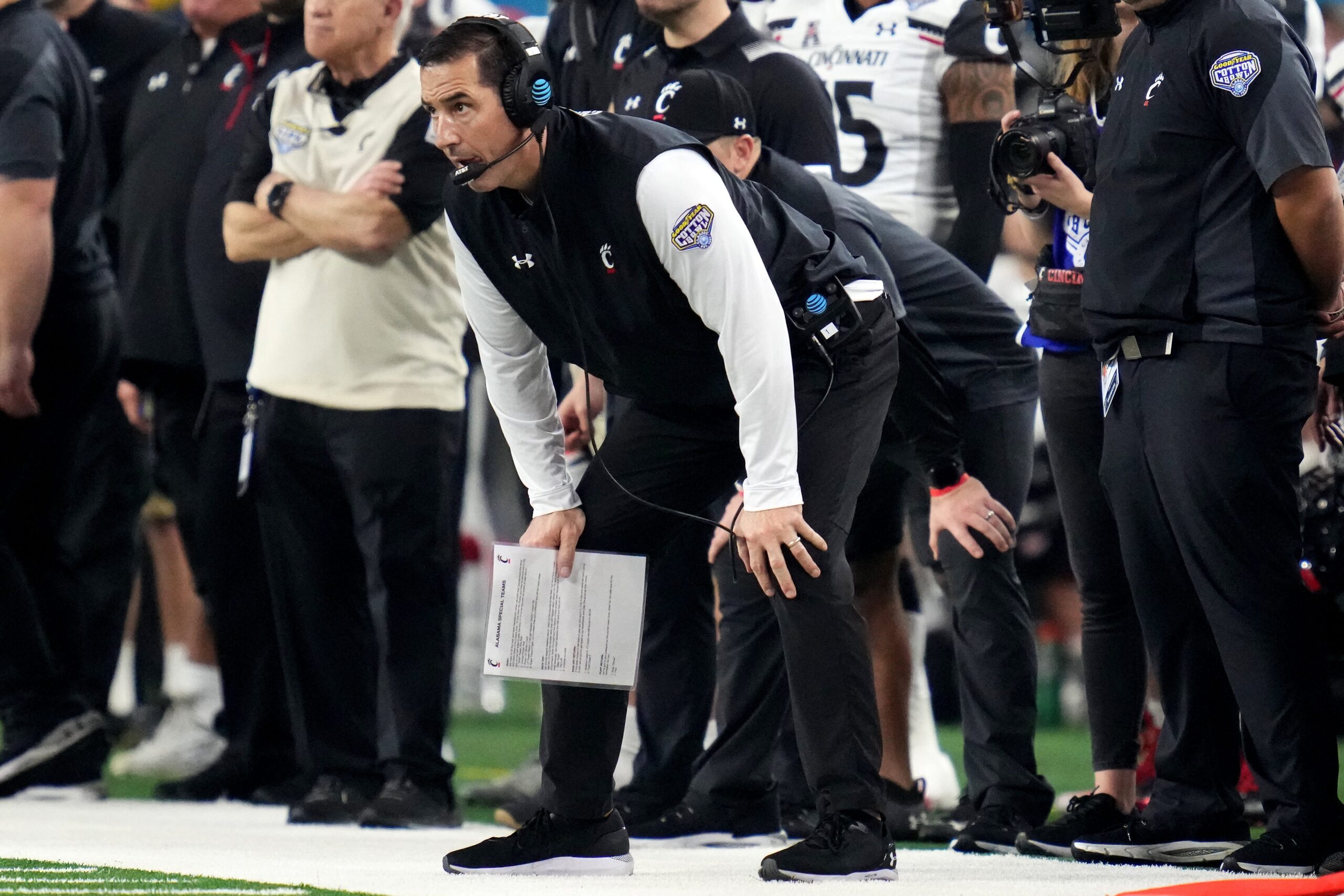
Finding His Own Coaching Voice
Fickell felt it was time to become a head coach and decided to hit I-71 South to the University of Cincinnati.
Tommy Tuberville never was able to recapture his Auburn magic in “The Queen City,” failing to build off of his predecessors’ successes. Mark Dantonio (Michigan State), Brian Kelly (Notre Dame), and Butch Jones (Tennessee) were all able to win big at Cincinnati and parlay their success to premier Power 5 jobs.
Fickell began to take the things he learned at Ohio State and implement them, adding his own touch and create a winning and championship culture in Cincinnati.
The Bearcats, under Fickell, would become the preeminent program in the American Athletic Conference, with his zenith being the 2021 team that was the first Group of 5 school to participate in the College Football Playoff.
Under his leadership, he elevated Cincinnati to being deserving of Power 5 status on the back of two AAC championships and New Year’s Six berths, a signature win over a top-10 Notre Dame squad, and the aforementioned CFP appearance. All of this added up to the Bearcats being sought after by the Big XII, the conference they will debut in this fall, albeit without the man who led the charge in getting them there.
Fickell also knew how to develop talent at Cincinnati, where 20 Bearcats were selected in the NFL Draft during his tenure, including nine in the 2022 NFL Draft, including top-5 pick Sauce Gardner.
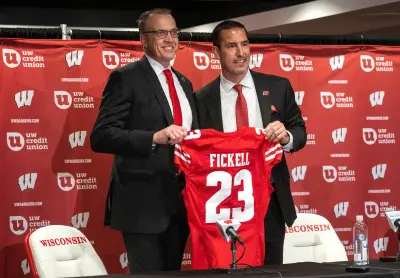
An Unexpected Move
When current Wisconsin athletic director Chris McIntosh made the decision to part ways with Paul Chryst, he understood it was a pivotal time in Wisconsin history. Most Badger fans were anticipating former three-time All-American defensive back and defensive coordinator Jim Leonhard to be the next head coach.
When Leonhard didn’t quite reach the level McIntosh desired, and Fickell expressed interest, it was a bold move in his young term as athletic director to go beyond the Wisconsin family to make the hire.
That got Hall of Fame Wisconsin coach and McIntosh’s predecessor at athletic director Barry Alvarez’s attention.
When Alvarez was asked about Fickell, Alvarez called it a ‘home run’ hire.
With Alvarez appearing on ESPN Madison, he was asked why he felt Fickell was a ‘home run,’ Alvarez replied, “I’ve known him for a long time and watched him from afar, and what he did at Cincinnati is big time. So he knows what it takes to win, what type of player it takes, and at Cincinnati, that don’t have any five-stars, they’re coaching the heck out of them. So I’m really excited about the future of our program.”
Fickell explained recently to Greg McElroy why he left a very successful Cincinnati program he built to a partial rebuild in Wisconsin, “Well, I think that’s probably one of those things we didn’t talk about and say hey, ‘What kind of fell in line with you to taking this job?’ The Big Ten had a big part of it. Kind of felt like if you weren’t in the Big Ten or the SEC, then who knows where you’d be in the next two-three years. I just see the Big Ten continuing to move in that direction. Whether it’s expanding, growing, adding teams. Yes, there’s going to be a completely different look.”
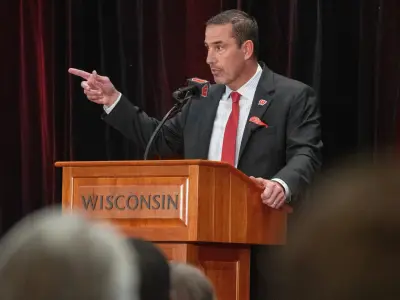
Merging Tradition and Innovation
Wisconsin is about to experience its largest undertaking as a program since Barry Alvarez took over in 1990.
Fickell is looking to modernize the Wisconsin attack with his flavor of the Air Raid. His vision for success allowed him to lure North Carolina offensive coordinator Phil Longo to Wisconsin.
While Fickell is looking to make his impact with his impression on the program, he told the Bleav in Badgers podcast during an interview at ‘Squat Fest’ how important he values and potential starting quarterback Tanner Mordecai from SMU, the established culture at Wisconsin, “You don’t always want to talk about the quarterback but the reality is the quarterback is a multiplier, right? Whatever you’ve got as a quarterback, if he is a great leader and he’s a great team guy, like he multiplies whatever his ability is whatever the team is, and I’m happy it’s like Tanner has walked in here, Mordecai has walked in here and just embraced all things Wisconsin. I mean, the way he’s done it, he’s watched, he’s observed. Me and him, we have talked about this. We are on the same path, like, there’s amazing things that have been done here. There’s amazing culture like we’ve got to recognize that together and embrace it.”
Fickell recognizes the excellent foundation he has in Wisconsin, and his willingness to embrace it is a great first step. He recognizes that for the Badgers to reach their fullest potential, the entire program to be willing to make the sacrifices necessary as a program and evolve with modern tactics to promotion, recruiting, NIL, and leverage the state-of-the-art facilities Wisconsin has to reach the highest of levels.
Fickell, with not the same level of available resources, turned Cincinnati into a playoff contender, the new Wisconsin it may even be more.
